|
28/3/2024 0 Comments SWIFT Events Newsletter | Issue 11 This issue includes a featured article and some highlighted programmes, courses and events from our partners to support your professional development and enhance the work of your school. Simply click on the booking link to the course or event you are interested in to get more details or book straight on! Featured in this issue we have: SWIFT Summer Conference 2024 | Thursday 13 June | Future Skills Centre, Exeter Hear from a range of international, national and local speakers from across the educational landscape as they discuss the latest issues. Please click HERE to view more information and book. Highlighted Programmes: · LSSW Connect: Leadership Study Visit | Leeds & Bradford · Improving Writing in Secondary Schools · Professional Communities · Primary Subject Leader Briefings · Devon School Business Managers Association Annual Conference · Events for your diary
0 Comments
14/3/2024 0 Comments SWIFT Events Newsletter | Issue 10 This issue includes a featured article and some highlighted programmes, courses and events from our partners to support your professional development and enhance the work of your school. Simply click on the booking link to the course or event you are interested in to get more details or book straight on! Featured in this issue we have: SWIFT Summer Conference 2024 | Thursday 13 June | Future Skills Centre, Exeter Hear from a range of international, national and local speakers from across the educational landscape as they discuss the latest issues. Please click HERE to view more information and book. Highlighted Programmes: · Supporting Students with High Academic Potential | One Day Programme · Enhancing engagement & belonging through curriculum · Professional Communities · Primary Subject Leader Briefings · Improving Writing in Secondary Schools · Events for your diary World Water Day | Friday 22 March 2024 | Vanishing Sea The theme of this year's World Water Day is ‘Water for Peace’, and focuses on the critical role water plays in the stability and prosperity of the world. On Wednesday 20 and Thursday 21 March 2024, our sponsor, Lyfta is offering FREE live lessons to bring the world into your classroom (see details below). Travel (virtually) to Jordan and spend time with farmer, Hassan as he battles the decline of the Dead Sea with the looming threat of sinkholes all around his farmlands. You will also be able to take a wider look at the issues of water security in a region affected by historical and ongoing conflict and learn why the River Jordan is special to half of humanity. Booking
Complete the booking form below to select one of the following time slots:
If you have yet to sign-up for a Lyfta subscription, you can set up a starter account on the link below, which will allow you to access supporting resources ready for the live lesson. We are pleased to report that SWIFT has been given another four years of Government funding following the re-designation of Colyton and Kingsbridge Teaching School Hubs. Government validates the work of schools with £1,560,000 funding over next four years. The Government has re-designated Colyton Grammar School and Kingsbridge Community College, a member of the Education South West Trust, as Teaching School Hubs. The schools use the £1,560,000 of funding over the next four years to improve the recruitment, retention and training of teachers and leaders in our South West schools. They do this through the organisation they have founded called SWIFT – the South West Institute for Teaching. SWIFT has had remarkable success in its first three years of operation.
This totals to 3,295 teachers and leaders who have engaged in over 80,000 hours of training with SWIFT to have a direct impact on the quality of education and lives of young people in South West schools. Georgia Wheatley is a Year 6 Teacher and SENDCO at Tor Bridge Primary in Plymouth: “The SWIFT Early Career Framework programme combined online learning with the opportunity to meet others in-person at seminars. This is a fantastic way to network with other colleagues across Plymouth and has been fundamental to my development as a teacher. The modules linked with previous training that I had received at my placement schools and university. This has allowed me to build on previous learning and apply it in my classroom practice.” Aimee Mills is Assistant Headteacher at The Park School in North Devon and has been studying with SWIFT for her National Professional Qualification in Headship (NPQH): “NQPH with SWIFT has given me confidence to trust my instincts and methods. I have a solid foundation of knowledge to fall back on when I need it. One of my modules was all about Special Educational Needs. I hadn't realised how much it prepared me for the role, which I have taken on with confidence and gusto; I haven't been shy of making a few changes!” This September, SWIFT has been further accredited to offer its own programme of recruiting and training teacher trainees in South West schools and has already signed up over 60 trainees who will start this September. SWIFT Executive Director, Martin Smith said: “We know that many people want to change career to enter teaching, as well as the graduates who join straight from university. People want to train in the beautiful South West, and to train near where they live. We have five campuses in North Devon, Plymouth, East Devon / Dorset and Mid Devon / Somerset and aim to recruit 430 trainees over the next four years. We work with other training providers to boost the numbers joining the profession. Together we are making a significant impact in improving the recruitment and retention of teachers in South West schools.” Natalie Holt is starting her training as a teacher with SWIFT Teacher Training this September. She is currently a nurse and is making a career change to teaching: “I have chosen to make a career change into teaching because I want to inspire and support the next generation. Teaching lets me share my passion for my subject and develop that enthusiasm for learning in others. SWIFT is my choice because the course mixes face-to-face and online learning, and is designed and delivered by expert teachers. I can’t wait to start!” Headteacher of Colyton Grammar School, Tim Harris said:
“There are two huge benefits of this school-led approach to improving recruitment, retention and quality of our teachers. Firstly, it is practising experts who are providing their wisdom and expertise to build the skills of our future teachers and leaders. Secondly, the funding goes to our schools and stays within the school system.” CEO of Education South West, Matthew Shanks said: By working collaboratively across two Teaching School Hubs, SWIFT are having a positive impact on teachers and leaders. The people who ultimately benefit from this work – massively – are the children throughout the South West.” By Roger Pope CBE, Associate & Strategic Leader of Teaching & Research Schools (Education South West) I am pleased to be presenting at the “Once Upon a Time” festival on Saturday 15 June 2024 at Bristol Beacon, which builds on our partnership work with organiser, Helen Prince. Helen is the author of the most recent Oxford Language Report (2021 – 2022) that looks at the scale of the word gap and the impact of Covid on language developments as an ongoing issue. After sifting through hundreds of school submissions regarding their focus on oracy to boost progress, standing out in their innovative and exemplary practice, Helen and the team included Tor Bridge Primary School as one of nine schools in the report. In my role as Head of School at Tor Bridge Primary, Helen and I presented these findings at the 2022 ASCL conference and since then Helen has supported our school in our fluency training and oracy work. Helen’s passion, pedagogy and relentless focus on improvement has led to huge moves forward for our fabulous school. We were thrilled that Helen remarked how she has rarely encountered schools with such openness and commitment to improving practice at every level. We have overcome - and continue to overcome – the barriers that limited cultural capital and low expectation can present through their focus on an oracy education, cementing the widest, brightest horizons for their pupils; which we like to think is testament to the high aspirational help of myself and our Trust.
Helen's expertise, combined with my leadership, has not only inspired the staff within The Inspire Multi-Academy Trust (South West), but has also had a profound impact on our children. This year, the excitement is palpable as Helen and I eagerly anticipate our collaboration once again, this time at the Once Upon a Time Festival in Bristol. The festival, known for showcasing story-led, creative teaching, aligns perfectly with Tor Bridge Primary School's commitment to oracy education. Helen and I, along with further brilliant keynote speakers, are thrilled to bring oracy to life through the immersive and enchanting world of storytelling, music, and drama. The Once Upon a Time Festival will provide a unique platform for educators to explore and embrace the creative potential of language. Imagine an exhilarating educational oracy festival for teachers, where passion for language and creativity converge. This vibrant event offers a dynamic platform for educators to immerse themselves in innovative teaching methods. From captivating storytelling sessions to interactive workshops, the festival becomes a melting pot of ideas, fostering a community of educators dedicated to enhancing oracy skills in the classroom. Teachers can escape into a world of inspiration, and gain valuable insights and practical tools to elevate their pedagogical practices. The festival's unique blend of story-led, creative teaching serves as a catalyst for professional growth, empowering educators to transform their classrooms into dynamic hubs of communication and expression. This exciting educational festival will not only ignite the spark of creativity in teachers, but will also cultivate a shared commitment to nurturing the language skills of the next generation. This is not only an event. It is an opportunity to imagine what is possible in your classroom, and will leave you inspired and equipped to transform your teaching approach. Join us for an unforgettable experience where the possibilities for enriching oracy education are boundless. By Olivia Bartlett, Head of School, Tor Bridge Primary School We are pleased to bring you this March issue in which Roger Pope CBE, Associate & Strategic Leader of Teaching & Research Schools (ESW) begins with some good news for SWIFT with the successful re-designation as Teaching School Hubs for the next four years.
"It is great news that the Government has renewed its commitment to the Golden Thread of Initial Teacher Training (ITT), Early Career Framework (ECF) and National Professional Qualifications (NPQs), backed up with the task of overseeing the induction and accreditation of new teachers through the Appropriate Body Service (AB)." With this renewed sense of purpose, you can read some of the highlights from the Spring Leadership Forum and about Tor Bridge Primary School's commitment to oracy education that will be manifest when Head of School, Olivia Bartlett presents at the “Once Upon a Time” Festival on Saturday 15 June 2024 at Bristol Beacon organised by Helen Prince. We have a double interview (aptly for Mathematicians) with Laura Clitheroe and David Hick, joint CODE Maths Hub Leads, who are sure to inspire you to discover more about their programmes. Meanwhile, Helen Thorneycroft from the Kingsbridge Research School considers the teacher as learner and how narrating our challenges can push forward students’ metacognition. Plus two Countdown-style teasers! If you have ever wondered about the Data Protection protocol for sending home flyers for third-party organisations in your pupils' school bags, then SchoolPro TLC provides some useful clarification on this issue. Whilst ONVU Learning calls for change with a rethink about lesson observations and considers the context of learning and more besides in supporting teaching and learning in your school. Angelica Anderzon shares her journey as an Exeter Supply Partnership Teacher and we congratulate Director, Dr Sawsan Khuri of Volt Entrepreneurs as living proof of the value of entrepreneurship with her recent Girls to Women Award at the Diversity Business Incubator BAME Gala 2024. Educatering inspire with their healthy delicious food and share some of the top tips from their Community Parents Cook Club and previews of some of their new dishes. Whilst Lyfta offers FREE Live Lessons on the topic of 'Water for Peace' to mark World Water Day on Wednesday 20 and Thursday 21 March 2024 when you will join Jordanian farmer, Hassan as he battles the decline of the Dead Sea and take a wider look at the issues of water security in a region affected by historical and ongoing conflict. We wish you a continued rewarding and enjoyable term . Lesson observations have long been a cornerstone for teacher development and student achievement. However, the traditional approach to observations has often been met with apprehension and can sometimes be viewed as a critique rather than a constructive process. Matt Tiplin, VP Commercial of SWIFT sponsor, ONVU Learning, has extensive experience as a senior leader in a Multi Academy Trust (MAT) School and Ofsted inspector, and proposes here a re-evaluation of these practices to foster an environment of support rather than scrutiny. The Issues of Traditional Observation Methods Lesson observations, in their current form, tend to focus more on the teacher's delivery method rather than the impact of these methods on student learning. Matt, reflecting on his own experiences both as an observer and as a teacher, acknowledges the limitations of this approach. He argues that a shift towards a more supportive and low-stakes observation process could significantly benefit teachers and, by extension, their students. Limitations of One-Off Observations The traditional model of one-off termly observations has been criticised for leaving teachers feeling unsupported and overly scrutinised; as this method, which often emphasises the observer's preconceptions of what constitutes 'good' teaching, can overlook the effectiveness of the teacher's approach and its impact on student learning. Matt recalls an instance where his feedback focused on a teacher's style rather than the content delivery's effectiveness, highlighting the need for observers to consider the diversity of teaching methods and their respective outcomes. Understanding the Context of Learning Furthermore, Matt discusses the importance of understanding the context in which a lesson takes place. He emphasises that learning is not a one-off event but a series of interconnected experiences. Consequently, observations should not be isolated snapshots but part of a broader assessment of teaching and learning processes. This perspective challenges the conventional wisdom that a single observation can accurately reflect a teacher's impact on their students' learning journey. The presence of an observer can also influence the classroom dynamics, a phenomenon known as the Hawthorne Effect. A New Model for Lesson Observations To address these issues, Matt advocates for a more nuanced approach to lesson observations. He suggests that observations should be more frequent and formative, focusing on what students are learning over a series of lessons rather than a single classroom session. This approach encourages a dialogue between the observer and the teacher, where both parties can discuss the lesson's objectives and the expected outcomes. By doing so, the observation becomes a collaborative process, with the observer's role shifting from a judge to a partner in the teacher's professional development. Empowering Teachers through Self-Reflection and Technology Moreover, Matt highlights the value of self-reflection and the use of technology, such as discreet cameras, to allow teachers to review their lessons and identify areas for improvement – week by week. This self-directed learning in which teachers are in full control of the video footage empowers teachers to take ownership of their professional growth, making the observation process a tool for enhancement rather than evaluation. Conclusion: A New Approach to Lesson Observations The insights shared by Matt Tiplin on rethinking lesson observations find a strong resonance with the findings of the Institute for Public Policy Research (IPPR) in their "Improvement through Empowerment" report. Both advocate for a transformation in the traditional methodologies of classroom observation, emphasising the need for a more supportive, nuanced, and context-aware approach. Matt's reflections and suggestions offer a blueprint for rethinking lesson observations. By adopting a supportive, low-stakes approach that emphasises collaboration, context, and continuous learning, educators can transform observations into opportunities for genuine growth. This paradigm shift, rooted in mutual understanding and respect, has the potential to enrich the teaching profession and enhance educational outcomes for students. Engage with the Future of Education | Upcoming SWIFT Events with ONVU Learning If you are interested in delving deeper into the transformative approaches to lesson observations and teacher CPD as discussed here by Matt Tiplin, you will have a unique opportunity to engage directly with the ideas. Keep an eye out for an upcoming webinar from ONVU Learning on "Excellent Teachers create Excellent Memories," where Matt will be sharing his insights and experiences. You will have an opportunity to connect with ONVU Learning at the SWIFT Summer Conference on Thursday 13 June 2024.  By Matt Tiplin, VP Commercial, ONVU Learning Matt Tiplin is a Founding Fellow of the Chartered College of Teaching (FCCT), Former Ofsted HMI, Secondary School, MAT Leader, and Geography Teacher. He is also currently the Chair of Governors of a Community Primary School and the VP of ONVU Learning. 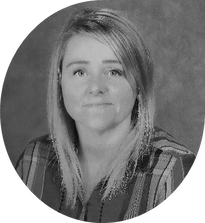 We are glad to work with Exeter Supply Partnership (ESP), a not-for-profit organisation that supports primary schools with their teacher supply needs within the Exeter area. If you are a qualified teacher and are thinking about a return to teaching, but wish to gain some experience before you apply for posts, then working for ESP might be the stepping stone for you. Read on as ESP teacher Angelica Anderzon gives us an insight here into her experience of working for ESP since she moved to England from Sweden. After finishing her A Levels, Angelica worked for several years in various roles in hospitality before completing a counselling qualification at Exeter College. Angelica has always loved working with people and going to work in education seemed a natural progression following her counselling course when she realised that people need support from a very early stage and wanted to work with children to help them to have the best start in life as possible. She completed a Teaching Assistant Diploma Level 3 at Exeter College and gained a Teaching Assistant role at a local primary school in Exeter. Whilst working as a TA, Angelica completed a BA Hons in Teaching & Learning Professional Practice with Worcester University and then trained as a primary teacher with Exeter Consortium Schools’ Alliance, achieving QTS in June 2023. Why did you choose to become a supply teacher? I applied for Early Career Teacher (ECT) roles; however, I was not initially successful and therefore decided to sign up for supply teaching as soon as I received my QTS certificate in June. This provided me with great experience working in a range of schools covering different age groups. Why did you choose Exeter Supply Partnership (ESP)? ESP was recommended to me by my teacher training programme leader. I found supply teaching quite daunting initially, however I soon enjoyed going to different schools and teaching different groups of children. I then secured a permanent role working two days per week in one of my placement schools and I now do supply teaching in addition to those two days. What do you wish you knew before beginning supply teaching? Nothing really stands out because after finishing my training I felt I was very well equipped to go into schools and do a good job. Initially I did feel quite alone as a supply teacher. but then I signed up for one of the ESP networking sessions where I met other supply teachers who were going through the same experience, which was extremely beneficial for me. What is your favourite thing about being a supply teacher? The best thing is gaining experience of working in a wide variety of schools where you learn lots of approaches and this really opened my eyes to how things can be done differently. For example, it has been so useful to look at various approaches to inclusion and provision for pupils with SEND and this has helped me to further develop my passion for this area of work. What are your favourite/most useful resources to use? I have not really needed my own resources because schools have been very clear about how they want things done especially around continuous provision. Planning has always been provided for the day and I have found this to be very clear. How do you prepare for your bookings? I have found that it is best to remain open minded and not to have any preconceived ideas about what a school is going to be like. It is good to have an open mind and of course to arrive at the school in plenty of time so that you can be prepared for the day ahead. What approach do you take when you are attending a new school? It is essential to have a look at the school policies, especially the marking policy, the behaviour policy and the safeguarding policy, all of which are provided by ESP prior to attending a booking, and to ensure that you follow the policies. I have taken approaches from my training into the classroom such as the Rosenshine’s principles. I like to have active classes, a ‘no hands up’ approach and ensure that all pupils contribute to the lesson. Would you say supply teaching is an enjoyable/fulfilling experience? I have absolutely loved supply teaching! The experience of going to the different schools has been so valuable for me and has added to my practice. It has also given me the opportunity to take different approaches into other schools when a school has been receptive to this. What advice would you give to a teacher who is new to supply teaching/ considering supply work? If you are thinking of supply teaching then definitely do it! The flexibility that supply teaching provides is amazing and the fact that ESP operate a calendar system as a part of their app means you can choose when you want to work. How do you manage the uncertainty of supply work and the possibility of not having work on some days? This is where being open minded about the schools you are happy to work in helps and it is about being brave enough to step into unknown situations and schools. I have been fortunate enough to have been offered all the work that I have wanted, I worked pretty much every day in July and the Autumn Term has been really busy for me. Would you recommend ESP to other teachers? If so, why? Yes, absolutely and I have already recommended ESP to other teachers, I believe that you are totally the best option out there. Everyone at ESP is so friendly and approachable and even though most communication is done through the app, if I have ever wanted to ask a question or need advice then there is always someone available and they respond really quickly. We thank Angelica for sharing her insights into working with Exeter Supply Partnership. Interview by Sacha Curtis, Office Manager and Mark Drew, Business Manager Exeter Supply Partnership (ESP) is a not-for-profit organisation linking supply teachers and their next job. If you have QTS, a passion for teaching and a desire to move into supply work then ESP are here to help. Perhaps you are newly qualified and looking to gain experience before joining a school full time. Maybe you’re looking to slow down and ease into retirement. Or possibly a parent trying to juggle work with a busy family life. Whatever your reasons may be, supply teaching offers flexibility and variety we we’d be delighted to help match you up with local primary schools. Exeter Supply Partnership is a Community Interest Company set up by the member schools of
Exeter Consortium, one of SWIFT's Delivery Partners, who also manage and inform the running of the organisation. As Mathematicians it adds up that Laura Clitheroe and David Hick provide double the benefits as joint CODE Maths Hub Leads. Both have been teaching for around 20 years and Laura recently took up the helm as the Hub Lead for three days last September, supported by David one day a week. Laura has been teaching for most of her career at Montpelier Primary School in Plymouth and has been Trust-wide Maths Lead for the Greenshaw Learning Trust, as well as supporting as Maths SLE. David is currently in his third year as Headteacher of Chacewater School, part of Truro Penwith Academy Trust, having started his career teaching at St Ives Junior School, before moving to Threemilestone School, where he was Assessment Lead, Maths Lead and Deputy Head, plus a short spell as Acting Head. David leads Maths for the Trust and has been leading the CODE Maths Hubs for about five years. Working together as CODE Maths Leads allows more capacity for Laura and David due to the evolving work. 1. What do you consider to be the main benefits for Maths CODE Hubs in working with SWIFT as your local Teaching School Hubs to date? Firstly, collaboration in working with system leaders, and sharing their knowledge and expertise; as well as access toother educational establishments, different voices and different people; which in turn gives access to other colleagues that we might not otherwise have access to within the SWIFT network. Secondly, access to other opportunities. For example, the facilitation of the National Professional Qualification in Leading Primary Maths (NPQLPM); which has been a very successful joint project with SWIFT. We have been able to signpost some of our Assistant Maths Leads to facilitate the NPQ through SWIFT, which is obviously great professional development for them and a great link with SWIFT. So, we are enjoying our mutually beneficial working together. But we are also able to have some say in the development of future teachers through the Teaching School Hubs which is important to us. 2. How has this benefitted you and your teams professionally and personally? Personally, for me (Laura), having recently started in the role, the support and contacts within SWIFT from expanded networks has been beneficial in enabling me to develop continually the reach and impact of the Maths Hubs across our region. Professionally (for Dave as he has been in the role for longer), it comes back to that professional growth and access and intelligence gathering which again, allows the Hubs to expand their reach. When you are working within the network of Teaching School Hubs, it is about feeding into that access, which in turn gives the people we are working with access to research-lead CPD, and we like to think this is what we are all about at CODE Maths Hubs. I think the way education is moving now we should be looking at education and research to support professional growth and start to implement this intent in order to see the impact. 3. What do you believe to be the most important role generally for Curriculum Hubs in supporting schools? I think the most important role for Curriculum Hubs is about developing teachers and educators who can deliver the very best outcomes for the children and students they are teaching. It is important to look at how we can take some of the educational research and distil it into best practice for teachers and in such a way that teachers, who might not have the time to benefit from the training opportunities as we might wish, can put it into practice; which again, is only going to be a good thing for children and students. We like to think of it as equitable access to high-quality professional development backed by research, and as Maths Hubs, we can help to provide that level of development from a variety of programmes, such as our Subject Knowledge courses for Teaching Assistants covering Maths lessons at primary, and for non-specialists in secondary. These are two of our most popular courses because we all know that there is a huge demand, not least because of the recruitment crisis and so many non-specialists are covering Maths lessons. Because the Maths Hubs provide fully funded and research-backed professional development opportunities, it is a win-win situation for schools and colleagues and our role as Maths Hubs is about recognising and responding to the current challenges in education. It would be counterintuitive to have a static view of education and with us both working within the profession, we are very much in contact and working alongside local leaders and benefit from this close-up insight into the educational landscape at primary, secondary and post-16 and we understand the challenges and how Maths Hubs can support better and continue to develop our support in a way that works. There are also parallels to other Curriculum Hubs and by understanding the national picture we can fit that into our understanding of the local context, which is important in serving our local communities. Obviously, our region is different contextually to London; but some of the national aims and objectives are going to be the same, and we need to think about how to marry together into the local context. 4. What one thing (if possible) would you change to enhance your support? Capacity, time and money! This relates back to what we were saying about the fact that it is no use having a static offer or a static view of how things should be as idealists, because we know that in reality this may not be possible/practicable. This is something that we are grappling with more and more despite the funding being there as schools understandably want teachers to be in classrooms. But we are keen to promote schools to see the bigger picture of professional development within their own school and as part of retaining teachers as it gives teachers something beyond their own school, and enables them to develop whilst retaining them in the profession. We believe in our strong and robust offer and the longevity of the programmes in schools from their sustained engagement and we know that this will have a positive impact. We are keen to help remove any barriers to facilitate what Laura called equitable access for all colleagues to ensure equitable balance that gives capacity to teachers so that they can be actively engaged in our Hub programmes. We understand this can be very challenging, particularly in some sectors where the funding does not make a difference because if you have not got a Teacher of Maths in your secondary school then the money does not make a difference. 5. What would you like to see more of in your future working partnership with SWIFT? Continued collaboration across the wider network as we have previously mentioned. Growing these links and working with SWIFT to continue to share our message about our Maths provision so that everyone understands what CODE Maths is about and our offer and how people can engage with us in a variety of different ways. We would also be keen to develop coordinated links across other Curriculum Hubs through SWIFT; which is important because there are parallels with the English Hubs and there is power in the ability to information and intelligence share. For example, we might be working with schools who potentially need some targeted support in Maths and where some wider teaching and learning support is needed, which we can fit into the remit of other Curriculum Hubs and the Teaching School Hubs can support and signpost to schools. It is back to effective system leadership in schools and Multi Academy Trusts and cross-school and Teaching School Hubs can help to magnify this working together that ultimately supports school improvement. More Information The CODE Maths Hub offers sustained and ongoing engagement with schools over the academic year to facilitate professional dialogue within continuing professional development. They support Network Collaborative Projects (NCPs) to develop a shared understanding and teaching for mastery; as well as Subject Knowledge of Teaching Mathematics courses. The CODE Maths Hub are currently recruiting for Mastering Number at Key Stage 1 for 2024 - 2025; as well as welcoming applications from teachers for their Early Years, Primary and Secondary Mastery Specialist cohorts for 2024 - 2025. You can read about Mastering Number at Key Stages 1 and 2 in the 2023 Coordinating Mathematical Success: the Mathematics Subject Report. Keep in Contact
The Hub will be recruiting after Easter for 2024 - 2025 and are always keen for schools to start their Teaching for Mastery journey, so do get in contact via their socials and subscribe to their mailing list on the link below. |
SWIFT News
|
SPONSORED BY
Join us, be a part of our SWIFT community |
© COPYRIGHT 2022 SOUTH WEST INSTITUTE FOR TEACHING SWIFT. ALL RIGHTS RESERVED | Website by brightblueC
VIEW OUR PRIVACY NOTICES | VIEW OUR COURSE T&CS
VIEW OUR PRIVACY NOTICES | VIEW OUR COURSE T&CS


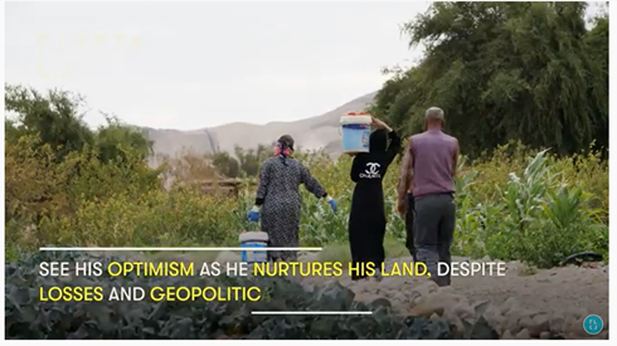

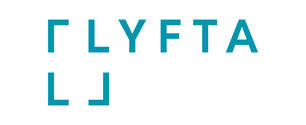












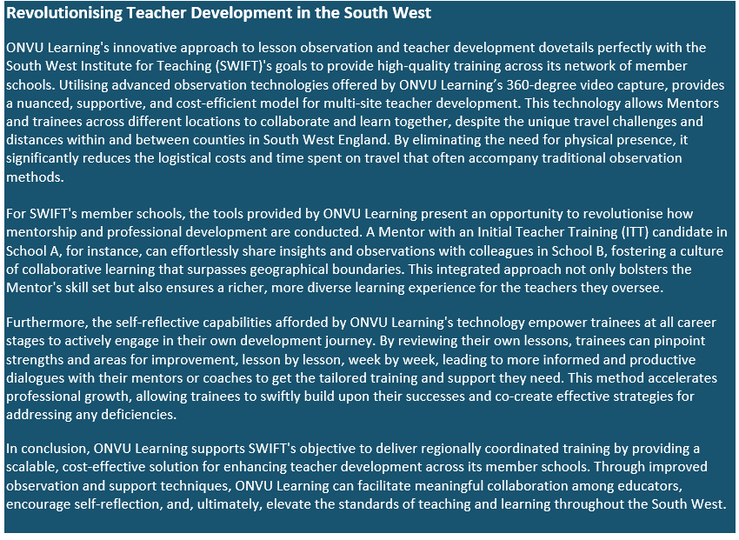

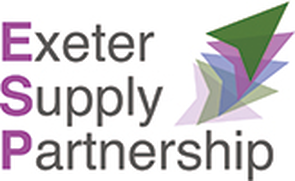

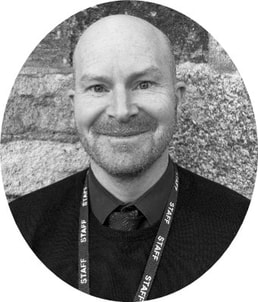
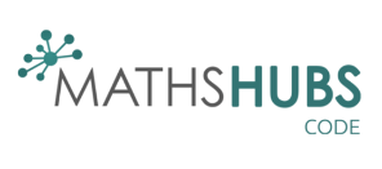
 RSS Feed
RSS Feed





